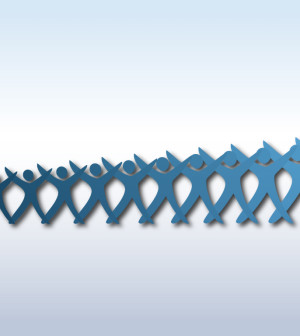- 8 Ways to Increase Dopamine Naturally
- 7 Best Breads for Maintaining Stable Blood Sugar
- Gelatin vs. Collagen: Which is Best for Skin, Nails, and Joints?
- The Long-Term Effects of Daily Turmeric Supplements on Liver Health
- Could Your Grocery Store Meat Be Causing Recurring UTIs?
- Are You Making This Expensive Thermostat Error This Winter?
- Recognizing the Signs of Hypothyroidism
- 10 Strategies to Overcome Insomnia
- Could Artificial Sweeteners Be Aging the Brain Faster?
- Techniques for Soothing Your Nervous System
Cells Show Signs of Faster Aging After Depression


TUESDAY, Nov. 12The cells of people who have had depression may age more quickly, a new study suggests.
Dutch researchers compared cell structures called telomeres in more than 2,400 people with and without depression.
Like the plastic tips at the ends of shoelaces, telomeres cap the ends of chromosomes to protect the cell’s DNA from damage. Telomeres get a bit shorter each time a cell divides, so they are useful markers for aging.
The researchers found that the telomeres of people who had ever been depressed were significantly shorter — about 83 to 84 base pairs of DNA shorter, on average — than those of people who had never suffered from depression.
The results remained even after researchers accounted for a host of lifestyle factors that can also damage DNA, such as heavy drinking and cigarette smoking.
Since people naturally lose about 14 to 20 base pairs of DNA in the telomeres each year, the researchers said the difference represents about four to six years of advanced aging.
The study showed only an association between depression and shorter telomeres, and didn’t prove a cause-and-effect link. The researchers said they aren’t entirely sure what the shorter telomeres might mean in depression.
On one hand, study author Josine Verhoeven said, it could be that having shorter telomeres somehow sets a person up for mental troubles. But it’s more likely that depression causes damage that leaves traces even at the cellular level, she said.
Depression is known to disrupt many physical systems. It alters hormones, suppresses the immune function and changes how nerves work. People with a history of depression have greater risks for diseases of aging, such as heart disease, type 2 diabetes, dementia and cancer.
“Results like ours suggest that psychological distress, as experienced by depressed persons, has a large, detrimental impact on the wear and tear of a person’s body, resulting in accelerated biological aging,” said Verhoeven, a doctoral researcher at VU University Medical Center in Amsterdam.
The study was published online Nov. 12 in the journal Molecular Psychiatry.
One expert said the study is significant in the number of people it involved.
“The strength of this report is its size,” said Etienne Sibellie, an associate professor of psychiatry at the University of Pittsburgh. He is studying how depression ages the brain.
Sibellie said previous research on the same question had mixed results — probably because the studies were too limited to pick up the effect, which is small and varies from person to person.
“It’s a small effect, but it’s real,” he said.
The next question science needs to answer, Sibellie said, is whether telomere shortening really matters and if reversing it could improve health. Other studies have shown that a healthier diet, exercise and measures to control stress may lengthen telomeres.
“It’s just not known whether it has an impact on cell function,” he said. “If that’s the case, it has potential therapeutic importance.”
More information
Head to the U.S. Centers for Disease Control and Prevention for more on healthy aging.
Source: HealthDay
Copyright © 2026 HealthDay. All rights reserved.










